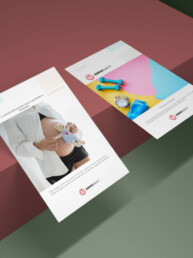‘One word: plastics’. Recent college graduate Benjamin Braddock (played of course by Dustin Hoffman) in the classic 1967 film The Graduate is told by a well-to-do and well-meaning neighbour that there is a great future to be had in plastics. Nowadays similar career advice may well include finding a solution to the plastic crisis. As our television screens and social media accounts are full of images of turtles choking on plastic bags, albatrosses feeding their chicks plastic toothpicks and dead whales being opened up to reveal a bellyful of plastic bottles, people around the world are waking up to the damage plastic is wreaking on the environment and the statistics are depressing. Every single item of plastic ever produced is still around today and that is a lot of plastic. Over five trillion plastic items litter our oceans and by UN estimates by 2050 there will be more plastic in the sea than fish unless we make radical changes now. No wonder plastic almost feels like a swear word.
The history of plastic is one of human ingenuity, revolutionary ideas and utopian goals.
Expat Parents
We haven’t always felt such hostility to plastic though. The history of plastic is one of human ingenuity, revolutionary ideas and utopian goals.
The invention of the first synthetic plastic in 1869 by John Wesley Hyatt was (unironically) praised as an environmental success.
Hyatt’s celluloid synthetic plastic was originally devised as a substitute for ivory and tortoise shell and was thus hailed as the saviour of elephants, tortoises and other wildlife who were being slaughtered in horrific numbers merely to enable the manufacture of items such as billiard balls. This synthetic plastic (the only natural ingredients being the celluloid derived from cotton fibre) was seen as a way of freeing humans from the limitations of the natural world. The plastic revolution had only just begun. In 1907, Belgian-born Leo Hendrik Baekland came up with an entirely synthetic, inexpensive and versatile plastic (containing no molecules found in nature) known as ‘Baeklite’ (the substance now filling our rivers and oceans). This was the first plastic that retained its shape after heating and was instrumental in mass producing radios, telephones and electrical insulators. Plastic fever had taken a grip of the modern world and there was nothing holding it back
Plastic may well last forever in the environment, not so much in people’s hearts. Nowadays, the devastating effect of plastic waste on the natural world is continually in the news. Although it is tempting to go and trample on the graves of these two inventors (and those who were inspired by them), we must remember that without these inventions many people around the world would not have gained access to material goods which would otherwise have been reserved for the wealthy. The use of plastic in packaging also brought big savings in food waste and hygiene.
It is safe to say that the invention of plastics changed the way we live and has raised our standard of living considerably. The trouble was that very few people seemed to be thinking of the long-term consequences of mass-production of this everlasting substance and this is why we are today where we are.
The war on plastics has been declared and no war would be a war without its heroes. From the painstaking investigations by teams of scientists to find biodegradable replacement plastics, to the numerous private initiatives to clean up the world’s waterways, heroes abound. Take the young Dutch entrepreneur and inventor Boyan Slaat. At the ripe old age of 19, Boyan set up The Ocean Cleanup, a non-profit entity which is busy perfecting technology in order to tackle the five huge ‘garbage patches’ currently floating around our oceans. Two surfers from Florida, Andrew Cooper and Alex Schulze, are also making waves with their organization 4ocean (clean ocean movement) which sells recycled plastic bracelets to help pay for the nearly 200 people employed worldwide to remove plastic waste from the sea. Individual artisans are incorporating waste plastic into their art to create new uses for old rubbish. From edible cutlery and packaging to waste plastic homes, organisations are putting on their collective thinking caps and looking for solutions to a global problem.
Be part of the solution, not the pollution.
Expat Parents
Heroes alone won’t win the war though. Individuals must also be conscious of the impact of their purchases.
Switzerland, rather surprisingly, lags behind other European countries in the fight to reduce, reuse and recycle.
The Swiss consume three times the European average in plastic products but, according to PlasticsEurope, just 25% of this is being recycled. Single-use plastic (roughly half of all plastic waste) is, of course, the worse culprit, but recycling alone is not a solution. The emphasis must be on changing habits whilst reducing consumption and reusing items. Small changes can go a long way: opt for powder detergents in cardboard boxes rather than liquids in bottles, buy refills where possible. Buy products with recycled content, shun companies who wrap their products in excessive wrapping. Choose soap over bottled shower gel, shampoo bars over traditional liquid shampoos.






